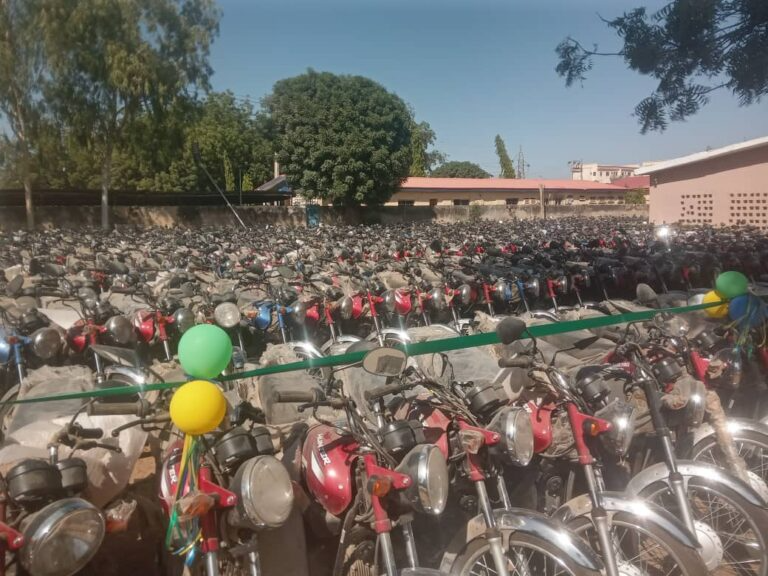…judges and lawyers should realise that disputes arising from chieftaincy and other local matters are within the exclusive jurisdiction of the High Court of each state of the Federation notwithstanding that the country is operating a distorted federal arrangement… “Courts in this country, without exception, have no power to prescribe jurisdiction for themselves. Neither do they have power to expand or reduce their area of jurisdiction.”
In the last one week, the Federal High Court and the National Industrial Court have separately conferred jurisdiction on themselves to determine chieftaincy matters. Both decisions are highly erroneous as they cannot be justified under sections 251 and 254(C) of the Constitution. As will be demonstrated anon, both courts conveniently overruled the judgments of the Supreme Court and the Court of Appeal on the subject matter.
The intervention of the Federal High Court in the dispute arising from the deposition of Emir Ado Bayero and co, as well as the restoration of Emir Sanusi Lamido Sanusi, is a brazen repudiation of the decision of the Supreme Court in the celebrated case of Tukur v Government of Gongola State (1987) 4 NWLR (117) 517, where it was held that, “The question raised in this claim is not a fundamental right question. As in the first prayer, the right to be Emir is not guaranteed by the Fundamental Rights provisions of the Constitution and the Federal High Court has no jurisdiction whatever in the matter. The Court of Appeal was therefore not in error of law to hold that the Federal High Court has no jurisdiction to grant the two reliefs.”
Before then the Supreme Court had made it categorically clear in the case of Olaniyi V. Aroyehum (1991) 5 NWLR (Pt. 194) 652 at 660 that the right to be a traditional ruler is not a fundamental right that can be enforced under the provisions of the Nigerian Constitution. Speaking for his judicial brethren, Karibi-White JSC stated that, “I agree entirely with Mr. Otu for the 8th defendant/Respondent that first, plaintiff did not claim that any right of him under chapter III of the Constitution, 1960 was violated. He also did not seek any redress under the chapter. Secondly, chieftaincy is not a matter of Fundamental Rights and cannot be enforced under the provisions of section 31 of the Constitution. It cannot be seriously argued that there is a fundamental right to be a ‘Chief’. It is not a human right even though it is a privilege claimed by human beings in an organised society to bring order to their mutual relationship. It is not such right which the law can enforce by virtue merely of the claimant being a human being.”
Since the apex court has said that the right to be an Emir is not a fundamental right under chapter four of the Constitution, the Federal High Court sitting in Kano ought to have declined jurisdiction to continue to entertain the dispute over the chieftaincy matter in Kano. In any case, the allegation of infringement of the fundamental rights of the Applicants is an ancillary claim to the substantive reliefs emanating from the deposition and reinstatement of the embattled emirs.
In FCMB Plc v Nyama (2014) LPELR-23973 AT 19-20, the Court of Appeal held that, “Now it is settled that where an application is made under the Fundamental Right (Enforcement Procedure) Rules, a condition precedent to the exercise of the court’s jurisdiction is that the enforcement of fundamental rights of the securing of enforcement thereof should be the main claim and not the accessory claim. Where the main or principal claim is not the enforcement of fundamental right, the jurisdiction of the court cannot be properly exercised under Fundamental Rights (Enforcement Procedure) Rules.”
The deposition of a traditional ruler cannot, by any stretch of imagination, be said to be connected with a “dispute arising from the entitlement of an employee, worker, political office holder, judicial officer or any civil or public servant in any part of the federation and matters incidental thereto.” The payment of stipend to a traditional ruler by a state government cannot turn him into an employee or a public officer.
In the same vein, the National Industrial Court held last week in the case of Jonathan Paragua Zamuna v The Governor of Kaduna State & Anor. (Suit No: NICN/KD/13/2023), that the deposition of the Claimant as a traditional ruler was illegal and ordered his immediate reinstatement. In justifying the jurisdiction of the Court to determine the case, the presiding Judge, Alkali J. held that, “the payment of the monthly salary to Jonathan Zamuna upon his appointment as the chief of Piriga Chiefdom or as an officer in the public service of Kaduna State who received salaries from the coffer of the State Government of Kaduna State brings the termination of his appointment to the realm of the jurisdiction of the Court.”
Nigerians need credible journalism. Help us report it.
PREMIUM TIMES delivers fact-based journalism for Nigerians, by Nigerians — and our community of supporters, the readers who donate, make our work possible. Help us bring you and millions of others in-depth, meticulously researched news and information.
It’s essential to acknowledge that news production incurs expenses, and we take pride in never placing our stories behind a prohibitive paywall.
Will you support our newsroom with a modest donation to help maintain our commitment to free, accessible news?
I submit, with profound respect, that section 254(C)(1) of the Constitution of the Federal Republic of Nigeria 1999, as amended, has not conferred jurisdiction on the National Industrial Court to hear and determine chieftaincy matters. Section 254C (1) (k) of the Constitution provides that the National Industrial Court shall have jurisdiction in matters relating to or connected with dispute arising from payment or non-payment of salaries, wages, pensions, gratuities, allowances, benefits and any other entitlement of any employee, worker, political office holder, judicial officer or any civil or public servant in any part of the federation, and matters incidental thereto.
The deposition of a traditional ruler cannot, by any stretch of imagination, be said to be connected with a “dispute arising from the entitlement of an employee, worker, political office holder, judicial officer or any civil or public servant in any part of the federation and matters incidental thereto.” The payment of stipend to a traditional ruler by a state government cannot turn him into an employee or a public officer.
Indeed, the controversy over whether traditional rulers are public officers was laid to rest in the case of Chief John Eze v Okechukwu 2002] 14 SCM 105, where the Supreme Court held that, “The definition of ‘public officer’ in section 277(1) of the 1979 Constitution, which was then applicable, was very wide. Even so, it did not include the office of traditional rulers…Therefore, even if the Appellant had been a traditional ruler, there is nothing that could be relied on to regard him as a public officer and accordingly, I hold that he was not entitled to the pre-action notice under the said section 11(2).”
Since section 277 of the 1979 Constitution and section 318 of the 1999 Constitution are in pari materia, a traditional ruler cannot be said to be a public officer whose removal from office can be challenged at the National Industrial Court. In Efa v Efa (2018) 18 WRN, the Court of Appeal held that it is apparent that traditional offices do not fall into any of the categories of public service of a state. The Court further held that: “These are not persons who can be held accountable to the high office and demands of a public service of a State and that they are persons versed in traditional matters and whose assignment is to guide the State or Local Government council on such related matters.” In the case of Makaan VS. Hangem & Ors. (2018) 32 WRN 47, the Court of Appeal equally held that since traditional rulers are not public officers, the provision of Section 2(a) of the Public Officers Protection Law of Benue State, 2004 have no application in an action involving them.
The summary of the existing judicial authorities is that the Federal High Court lacks the jurisdictional competence to entertain any matter pertaining to the deposition of a traditional ruler, unless the complaint is limited to his banishment or detention. In Sanusi Lamido Sanusi v Attorney-General of Kano State & Ors (Suit No: FHC/ABJ/CS/357/2020), the Federal High Court declared illegal and unconstitutional the banishment of the Applicant to Nasarawa State by the Governor of Kano State.
It ought to be pointed out that the payment of salaries to traditional rulers from the funds of local governments has not conferred jurisdiction on the National Industrial Court. In Bauchi State House of Assembly v Honourable Rifkatu Samson Danna (2017) 49 WRN 82, the appellants contended that the suit challenging the purported suspension of the Respondent was wrongly instituted in the High Court of Bauchi State. As counsel to the Respondent, we submitted that by virtue of section 318 of the Constitution, our client was not a staff of the House of Assembly and therefore the National Industrial Court was not competent to determine the case. The Court of Appeal concurred with our submission when it held that, “An elected member of a State House of Assembly is not in the “public service of a State.” The phrase means the service of the State and includes service as -(a) clerk or other staff of the House of Assembly.”
However, a traditional ruler who was deposed by a state governor without fair hearing is not without a legal redress. But in challenging the deposition or removal from the throne, the appropriate court to seek redress is the state high court. In Chief Joseph Odetoye Oyeyemi v Commissioner For Local Govt., Kwara State & Ors. (1992)2 SCNJ 266, the appellant sued the defendant at the Kwara State High Court, where he challenged the withdrawal of his recognition as the Bale of Oro without affording him the right to make a representation. He won at the High Court and lost at the Court of Appeal.
In the further appeal to the Supreme Court, the judgment of the Court of Appeal was set aside, while that of the trial court was restored. It was held by the apex court that the withdrawal of the recognition of appellant was illegal on the ground that he was not accorded the right of a fair hearing enshrined in section 33 of the 1979 Constitution. Consequently, the court ordered his reinstatement and payment of his outstanding arrears of salaries and allowances by the Kwara State Government.
The summary of the existing judicial authorities is that the Federal High Court lacks the jurisdictional competence to entertain any matter pertaining to the deposition of a traditional ruler, unless the complaint is limited to his banishment or detention. In Sanusi Lamido Sanusi v Attorney-General of Kano State & Ors (Suit No: FHC/ABJ/CS/357/2020), the Federal High Court declared illegal and unconstitutional the banishment of the Applicant to Nasarawa State by the Governor of Kano State. The Court also ordered the immediate release of the Applicant from illegal custody and a reparation of N10 million.
In conclusion, judges and lawyers should realise that disputes arising from chieftaincy and other local matters are within the exclusive jurisdiction of the High Court of each state of the Federation notwithstanding that the country is operating a distorted federal arrangement. Therefore, having regards to the facts and circumstances of the controversial decisions of the Federal High Court and National Industrial Court on the status of traditional rulers in Kano State, it is pertinent to draw the attention of judges to the case of Tukur v Government of Gongola State (supra), where Otutu Obaseki JSC (of blessed memory) cautioned that “Courts in this country, without exception, have no power to prescribe jurisdiction for themselves. Neither do they have power to expand or reduce their area of jurisdiction.”
Femi Falana is a Senior Advocate of Nigeria (SAN).
Support PREMIUM TIMES' journalism of integrity and credibility
At Premium Times, we firmly believe in the importance of high-quality journalism. Recognizing that not everyone can afford costly news subscriptions, we are dedicated to delivering meticulously researched, fact-checked news that remains freely accessible to all.
Whether you turn to Premium Times for daily updates, in-depth investigations into pressing national issues, or entertaining trending stories, we value your readership.
It’s essential to acknowledge that news production incurs expenses, and we take pride in never placing our stories behind a prohibitive paywall.
Would you consider supporting us with a modest contribution on a monthly basis to help maintain our commitment to free, accessible news?
TEXT AD: Call Willie - +2348098788999




















 English (US) ·
English (US) ·